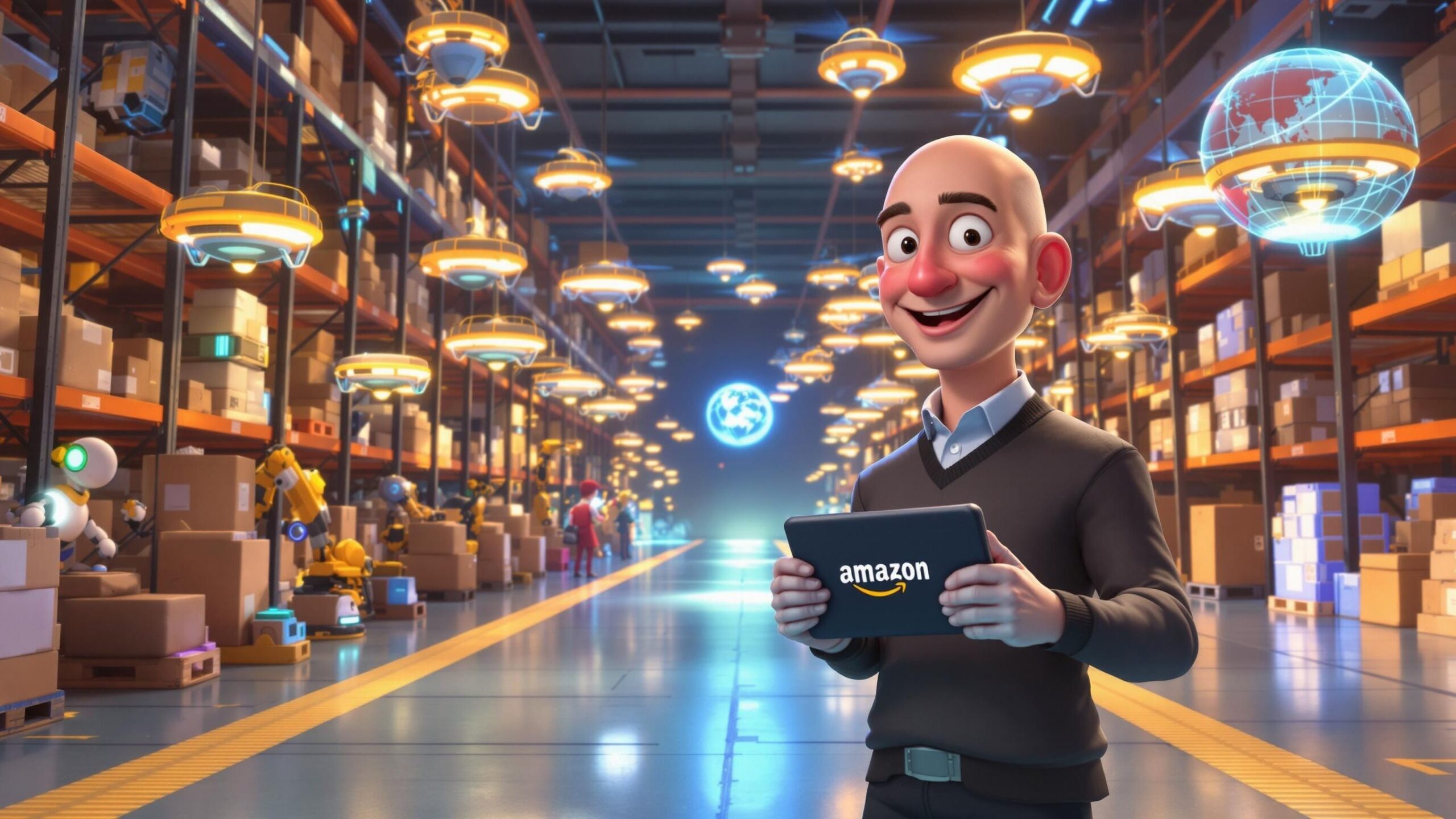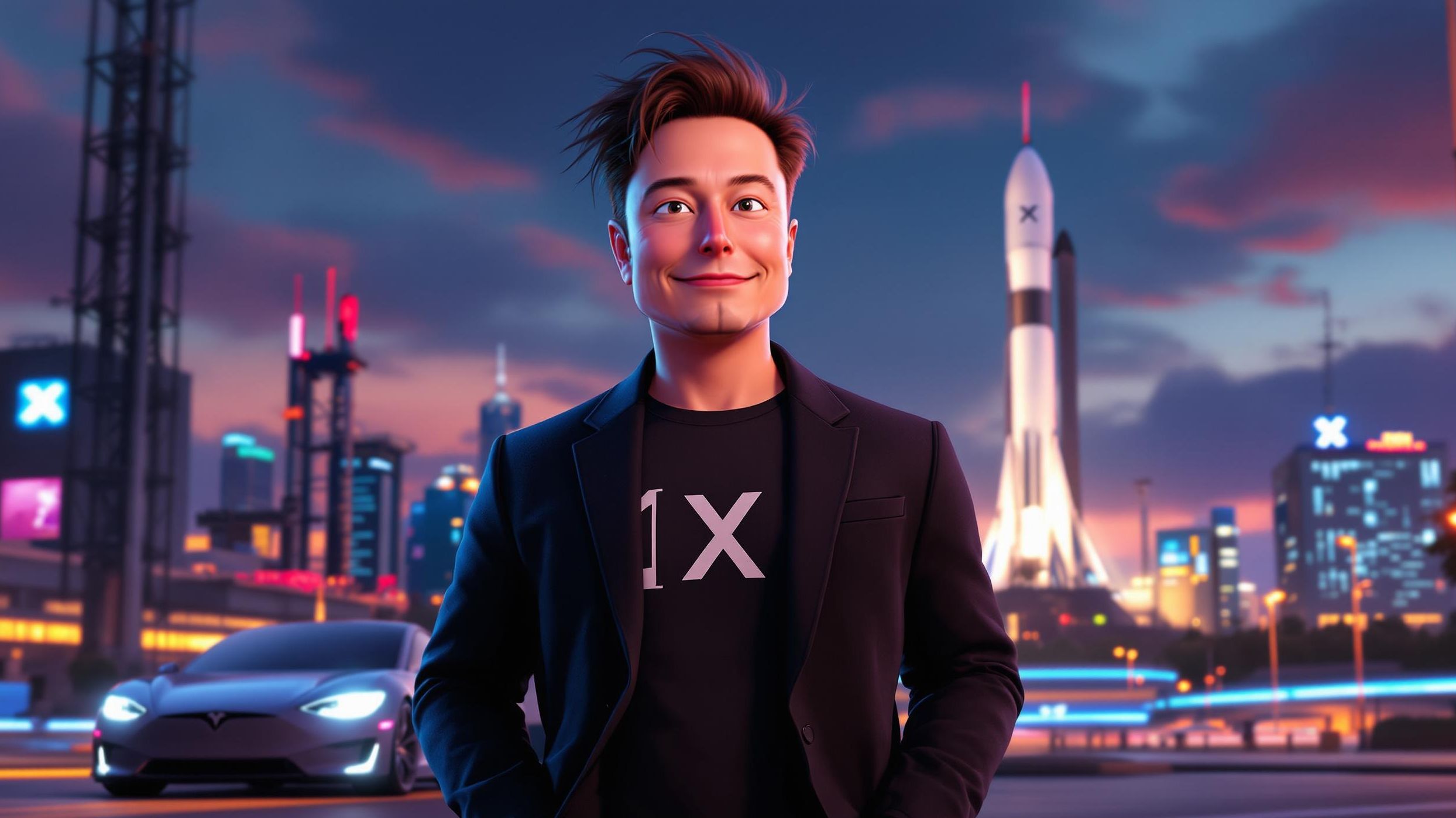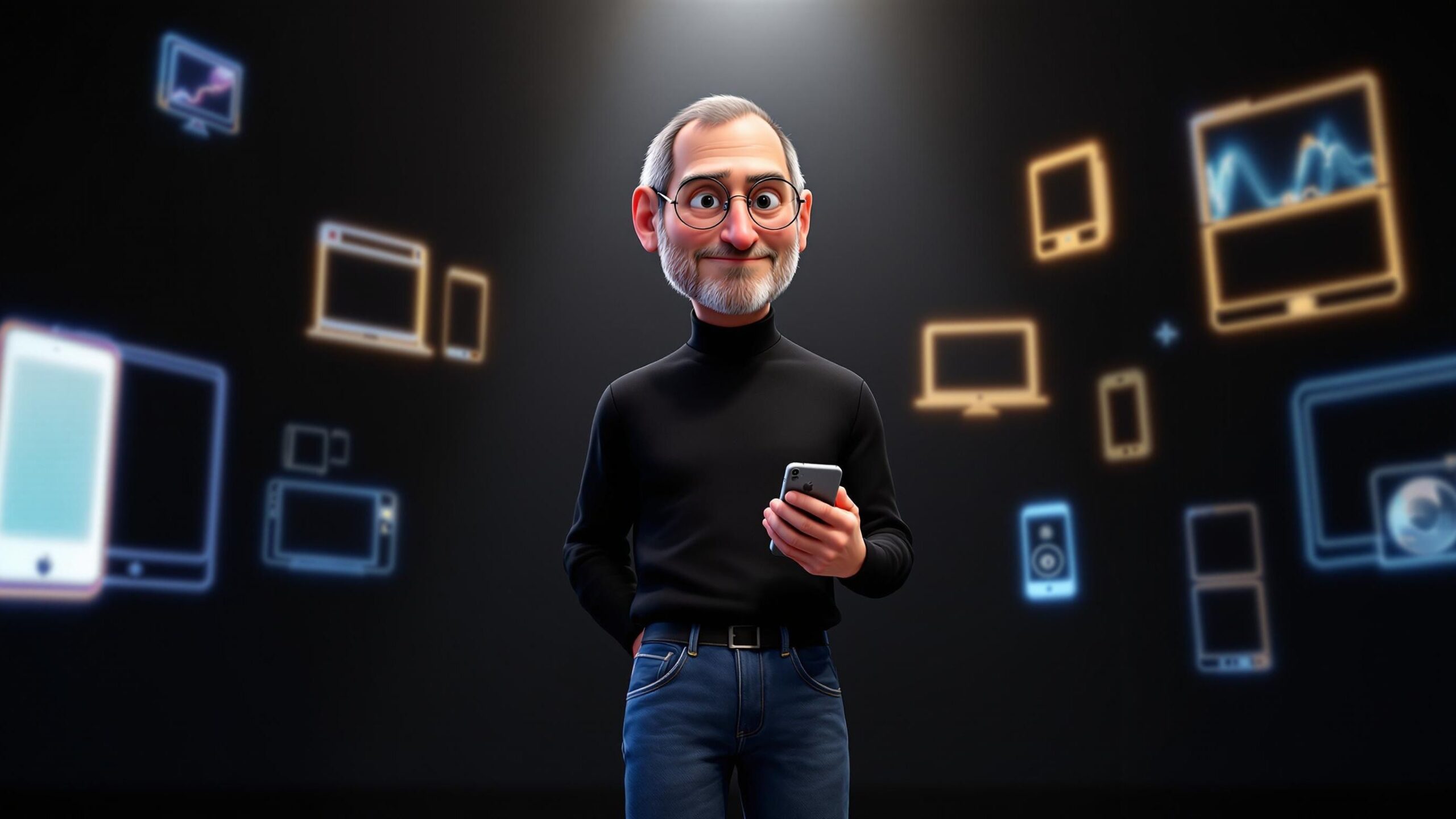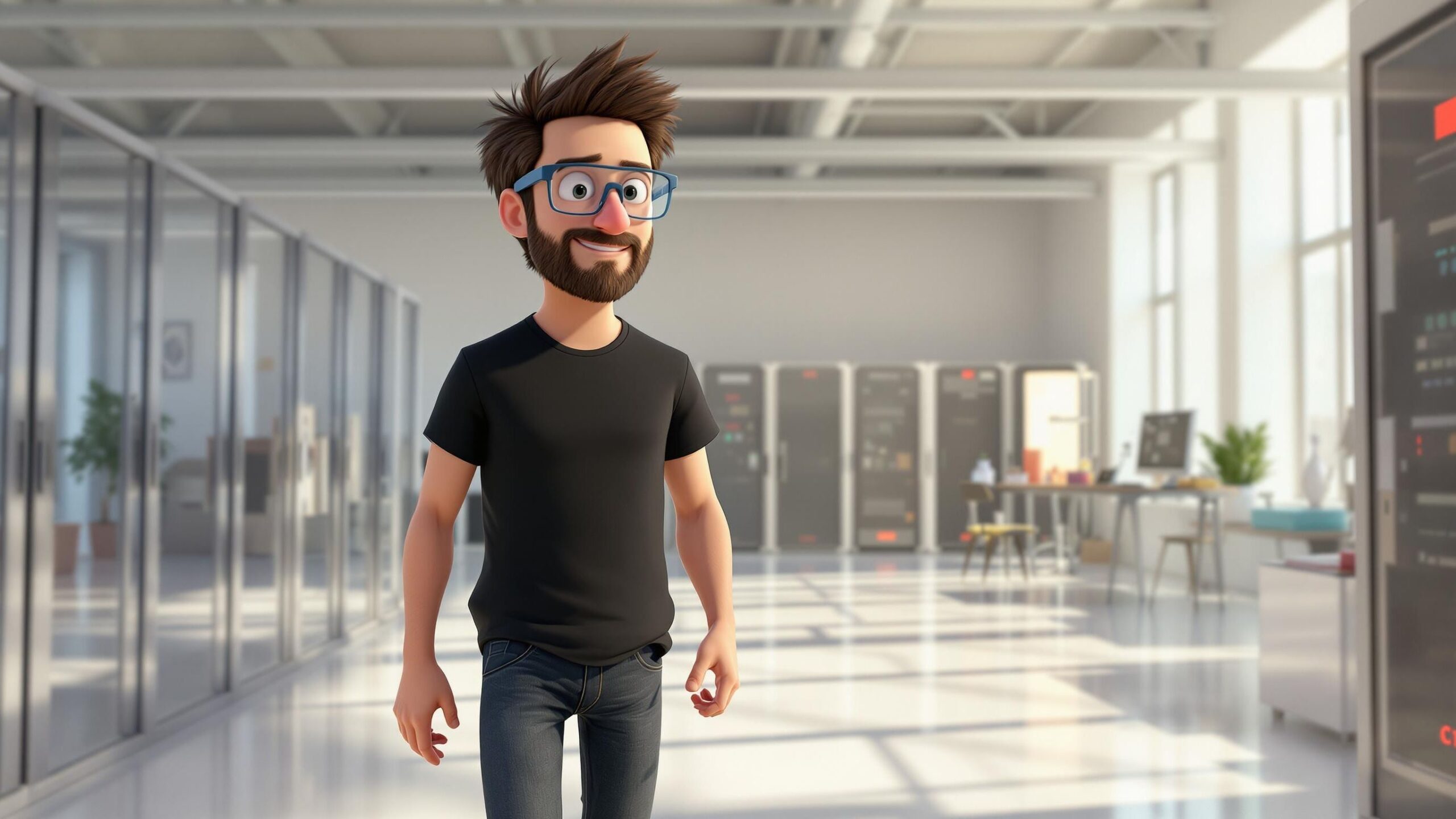When Jeff Bezos launched Amazon in 1994 from a garage in Bellevue, Washington, few could have guessed that the man surrounded by boxes and bookshelves would go on to change global commerce forever. With a dream to create “the everything store,” Bezos combined a relentless focus on the customer with bold, sometimes bizarre, bets on the future. From humble beginnings selling books online, Amazon would grow into a sprawling empire—disrupting industries from publishing to cloud computing, grocery stores to Hollywood. But Bezos wasn’t just building a company—he was building a new way to think about convenience, scale, and technology. As the founder of one of the most influential businesses of the 21st century, Jeff Bezos didn’t just ride the digital revolution—he steered it with precision, ambition, and a famously booming laugh. This is the story of how a Princeton grad with a vision and a whiteboard rewrote the rules of retail and reshaped how the world shops.
The Birth of Amazon: Books, Boxes, and Bold Ideas
In the early 1990s, the internet was still in its awkward adolescence. But Jeff Bezos, then a senior vice president at a Wall Street hedge fund, saw its potential. After reading a report forecasting 2,300% annual internet growth, Bezos made a decision that would become legendary: he quit his job, packed his bags, and headed west to start an online bookstore. Why books? They were lightweight, widely available, and had a massive catalog—perfect for online sales. In July 1995, Amazon.com went live, offering customers something revolutionary: the ability to browse a seemingly infinite catalog of books and have them shipped to their door. Bezos, working with a tiny team out of his garage, handled orders himself—packing, shipping, even writing code. But his ambitions stretched far beyond books. In fact, the name “Amazon” itself was chosen not just for alphabetical advantage but to reflect scale. Just like the mighty river, Bezos wanted Amazon to be vast, unstoppable, and essential. He reinvested nearly all profits back into the company, prioritizing long-term growth over short-term gains—a decision that made Wall Street nervous but ultimately paid off. As Amazon expanded into music, movies, and eventually everything from kitchenware to clothing, it became clear: Bezos wasn’t just building a bookstore. He was building the future of retail.
Prime and the Era of Instant Gratification
One of Bezos’s most powerful insights was understanding the value of time. With the launch of Amazon Prime in 2005, he offered customers free two-day shipping for a yearly subscription fee. At the time, it sounded risky—who would pay upfront just to save on shipping? But Prime wasn’t just a perk—it was a loyalty machine. Subscribers began ordering more, browsing longer, and relying on Amazon for everything from diapers to dog food. What Bezos had created was more than a shipping benefit—it was a lifestyle. Prime evolved to include streaming video, music, exclusive deals, and even Whole Foods discounts. With it, Amazon became not just a store, but a full-service platform for modern living. This “customer obsession,” as Bezos often described it, was the company’s guiding principle. He famously left an empty chair in meetings to represent the customer, ensuring their voice was always “in the room.” Through Prime, Bezos anticipated the age of convenience before it became an expectation. And with warehouses popping up across the globe, Amazon’s logistical footprint grew to match its ambition.
Amazon Web Services: The Cloud Giant You Didn’t See Coming
While most people know Amazon for its packages, the real financial engine powering the company might surprise you: Amazon Web Services, or AWS. Launched in 2006, AWS offered cloud computing services—storage, computing power, databases—to developers and businesses. It was a quiet revolution that changed the way companies operate. Bezos and his team recognized early on that many businesses needed the same infrastructure Amazon had built for its own operations. So instead of keeping it in-house, they rented it out. Startups, corporations, even governments began relying on AWS to run their digital operations. AWS now powers major players like Netflix, NASA, Airbnb, and countless others. It’s the invisible backbone of the internet, and its revenue has helped Amazon expand into new arenas without slowing down. By monetizing the digital foundation it had already built, Bezos showed a kind of strategic foresight that defined his career. While the world was focused on faster shipping, Bezos quietly turned Amazon into one of the most powerful tech companies in the world.
Disruption on All Fronts: Books, Groceries, and Hollywood
Jeff Bezos didn’t just disrupt industries—he demolished them, rebuilt them, and often became their biggest player. Take publishing: with the Kindle e-reader, launched in 2007, Bezos revolutionized the way we read. E-books went from novelty to norm, and Amazon soon controlled a huge portion of the publishing pipeline—from authors to readers. In groceries, the 2017 acquisition of Whole Foods stunned the market. A company born online had just bought a chain of organic supermarkets. It was classic Bezos: enter a market, combine technology with logistics, and scale fast. With cashier-less Amazon Go stores and grocery delivery through Prime, Amazon began changing how people shop for food, too. And then there’s Hollywood. Through Amazon Studios, Bezos turned the company into a streaming content powerhouse. Series like The Marvelous Mrs. Maisel and The Boys made waves, while blockbuster deals—including the Lord of the Rings TV adaptation—signaled Amazon’s intent to compete with Netflix and HBO. Each of these moves—publishing, groceries, entertainment—reflected Bezos’s belief in constant expansion, high experimentation, and an unshakeable focus on long-term domination.
The Bezos Blueprint: Innovation, Intensity, and Day One
At the heart of Amazon’s success was what Bezos called the “Day One” philosophy—a mindset that every day is the first day of a startup. It meant staying hungry, fast, and adaptable. Complacency, he warned, was the enemy of innovation. He encouraged risk-taking and tolerated failure. Projects like the Fire Phone flopped—but that failure paved the way for Alexa and Echo, devices that now anchor Amazon’s smart home ecosystem. The key was to keep inventing, learning, and staying bold. Internally, Bezos was known for his high standards and relentless expectations. His leadership style could be intense—some even said harsh—but it drove results. Meetings were data driven. Presentations were banned in favor of narrative memos. Every decision had to pass the test of customer benefit. And behind it all was a leader who read voraciously, thought deeply, and pushed boundaries. Bezos didn’t just build a company. He built a culture that prized velocity and vision in equal measure.
Blue Origin: Looking Beyond Earth
Even as Amazon consumed more of the planet’s commerce, Bezos had his sights set on the stars. In 2000, he founded Blue Origin, a private aerospace company aimed at making space travel accessible and sustainable. His mantra: “Gradatim Ferociter”—Latin for “Step by Step, Ferociously.” Blue Origin’s mission was different from that of SpaceX. Where Elon Musk focused on Mars, Bezos emphasized building the infrastructure to make space commerce viable. He dreamed of millions of people living and working in space. His reusable New Shepard rocket became a testbed for tourism and tech, successfully launching civilians—including Bezos himself—into space in 2021. With Blue Origin, Bezos hoped to create the tools future generations would use to expand humanity’s footprint beyond Earth. It was a bold pivot—but also a natural evolution for someone who had already mastered logistics and scale on this planet.
Transitioning Power: From CEO to Executive Chairman
In 2021, Jeff Bezos stepped down as Amazon’s CEO, handing the reins to longtime executive Andy Jassy. It marked the end of an era, but not the end of Bezos’s influence. As executive chairman, he remained closely involved in the company’s long-term initiatives, while focusing more on Blue Origin, philanthropy, and passion projects like the Bezos Earth Fund and The Washington Post. His departure from day-to-day operations was graceful and strategic—exactly what you’d expect from a leader who’d spent decades shaping the modern economy. It also highlighted his evolution: from internet entrepreneur to global titan, from bookseller to spacefarer. Even as he stepped away, the company he built continued to innovate, automate, and dominate. His legacy was embedded in every click, every Prime package, and every cloud-hosted app.
The Man Who Rewrote the Rules of Retail
Jeff Bezos didn’t just build a company—he built a universe. A universe where shopping is instant, information is infinite, and scale is only limited by imagination. His journey from garage founder to globe-shaping tycoon is a testament to vision, persistence, and a deep understanding of both technology and human behavior. With Amazon, he transformed how we buy. With AWS, he reshaped how the digital world runs. With Blue Origin, he dares to redefine humanity’s future. Through it all, Bezos has remained an icon of modern capitalism: enigmatic, innovative, and endlessly ambitious. While critics debate his labor practices or the size of his fortune, there’s no denying his impact. He made online shopping second nature, fast delivery a basic right, and cloud computing an invisible engine behind modern life. Jeff Bezos didn’t just disrupt retail—he built a new world from it.




